Idea by
ivana ivin
Call for ideas 2021
AppSCAPES
AppSCAPES
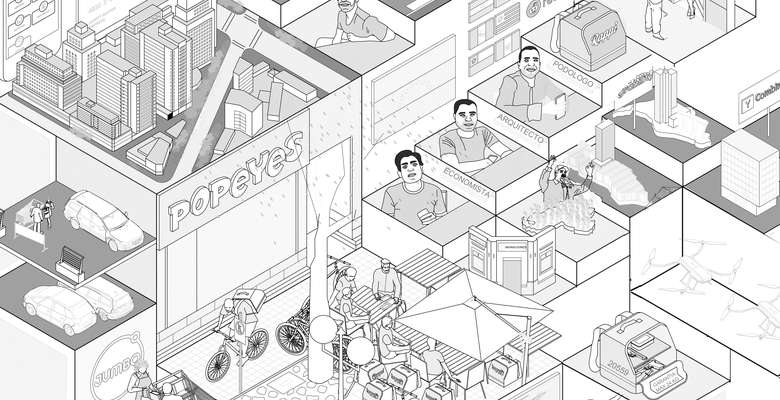
- Systemic changes
For delivery-app users, public space is no longer the place of commerce nether of consumption. Its use is a waste of time (which the platform sells). Curiously, the same activities that originally united people in cities, today allow isolation. What once was the best part of life, today is illusory upgraded and rationalized. On one hand delivery backpack volume is growing on the streets, on the other departments are getting smaller. Home service is obsolete, one worker is just in the place where you need it. The currency is not only money, but data. This way propaganda can easily find the precise consumer. Immigrant workers use the streets that the citizens pay for. Restaurants convert to black-kitchens. Architecture doesn’t need to gather nor attract the public for consumption.
Considering this, future is now! To emphasize these changes, I propose 3 rather catastrophic projects which respond to 3 different scenarios that could affect the app: economic, material and social growth.
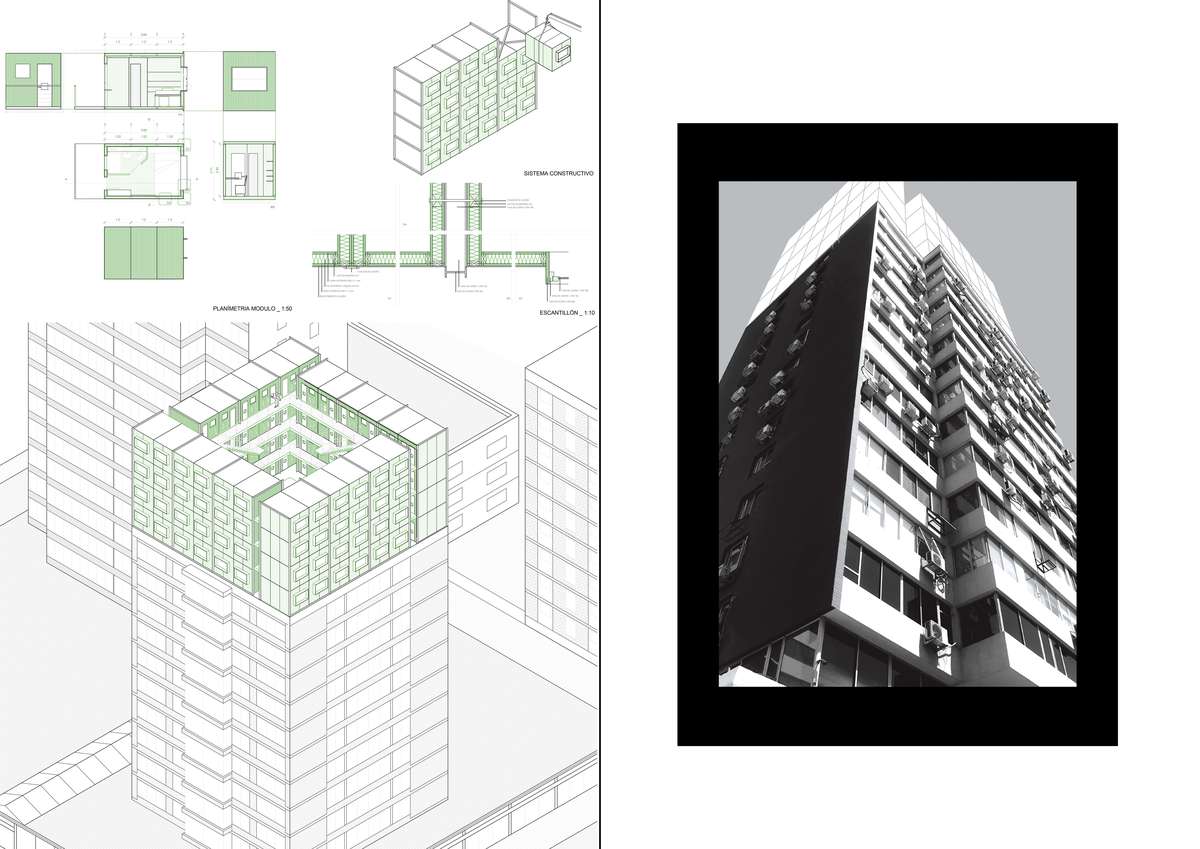
When optimizing man productivity (economic growth) architecture converts to a machine-cell tool
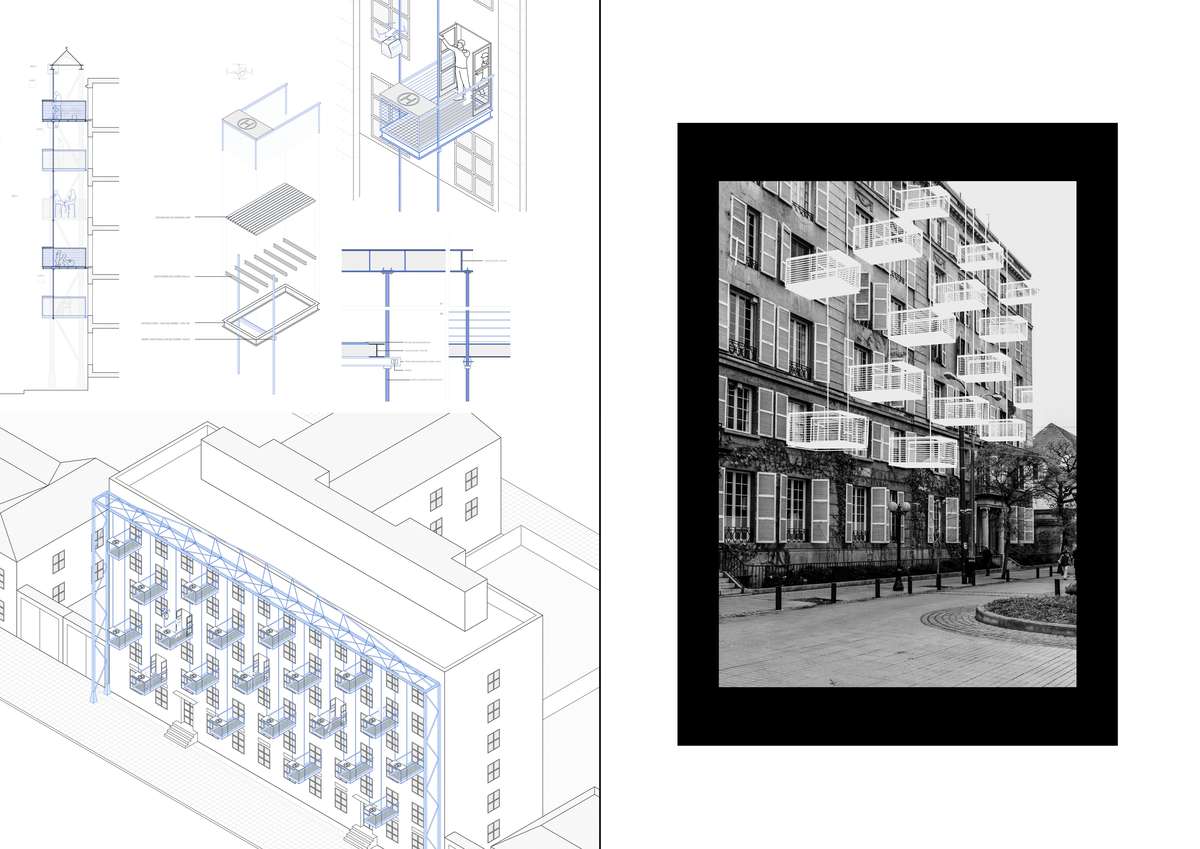
Materializing the app robotizes delivery, to which architecture has to adapt.
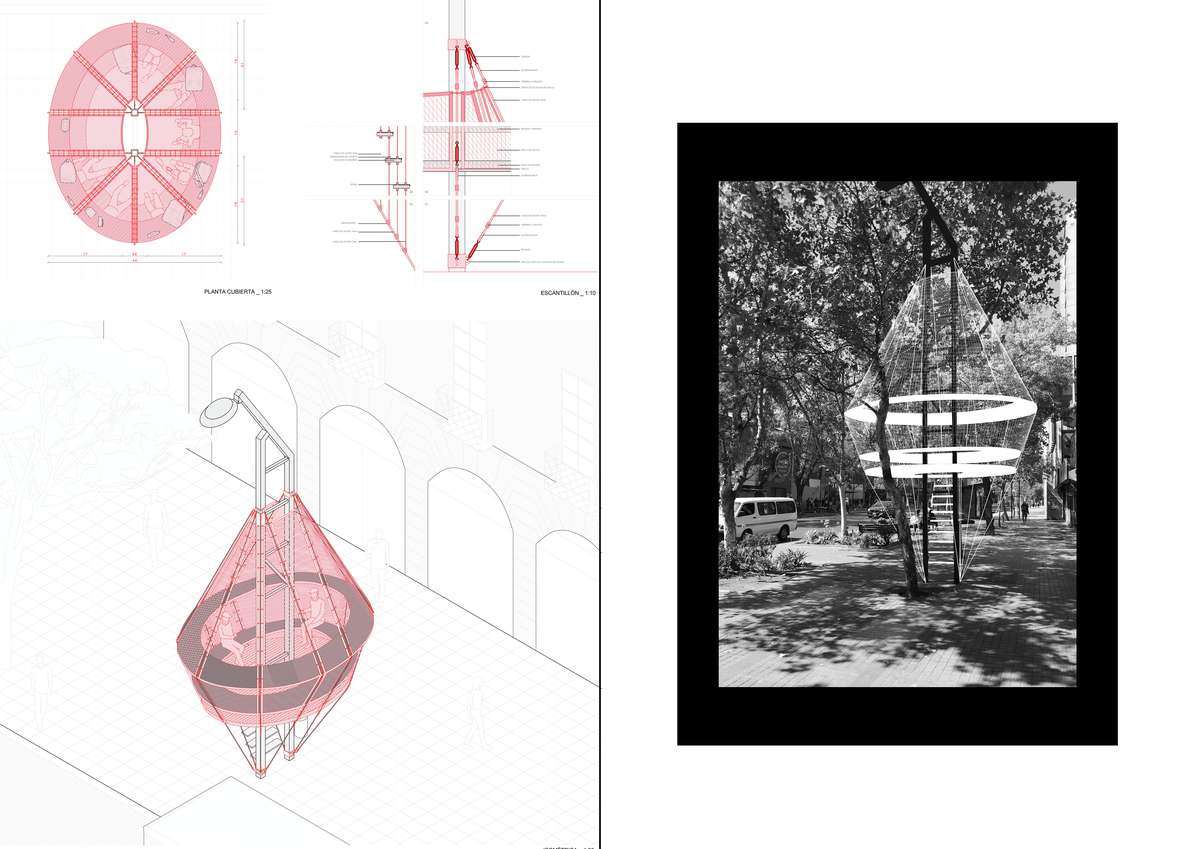
For better socializing of both the consumer (local chilean citizen) and the delivery immigrant worker (educated Venezuelan professional) they are distanced.
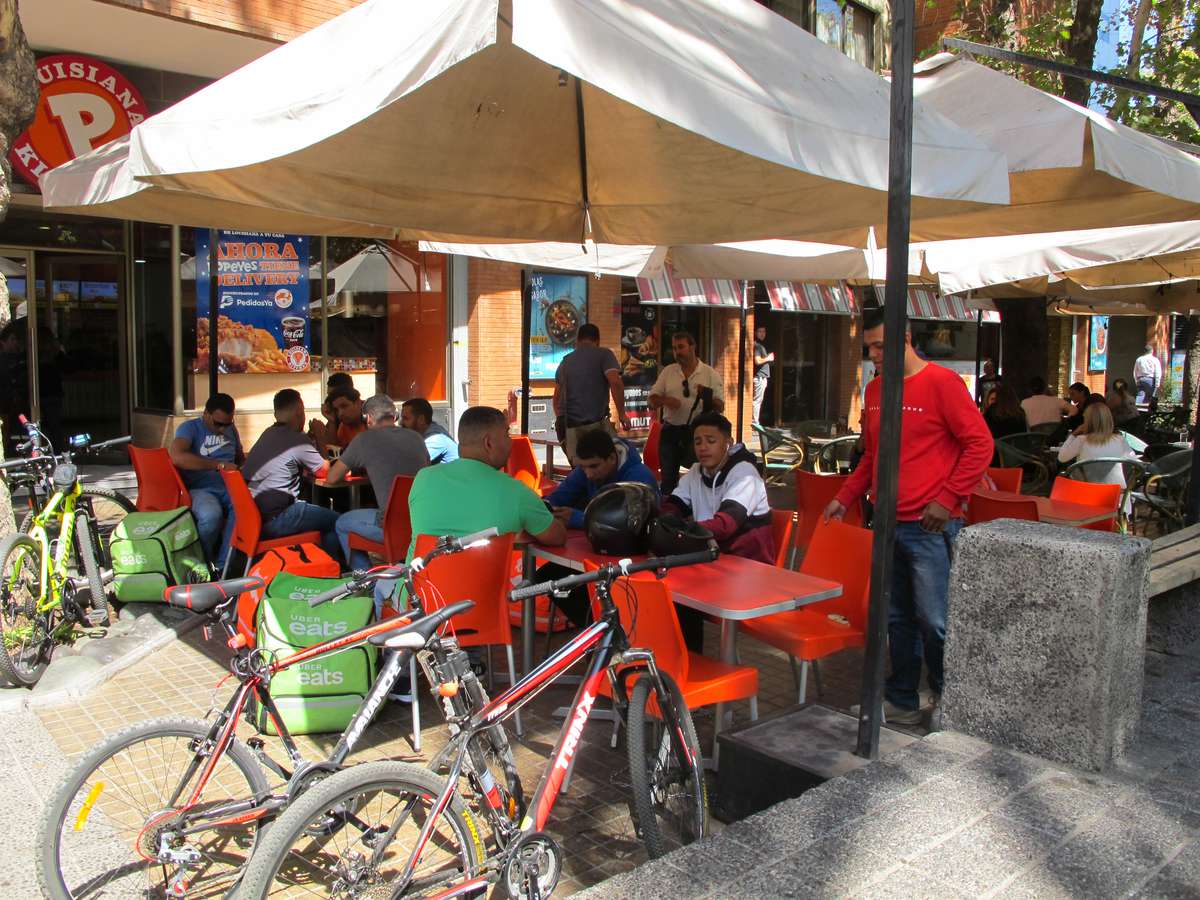
On site interviews. Workers use the public spaces and restaurants instead of the consumers. Santiago, Chile. 2020.
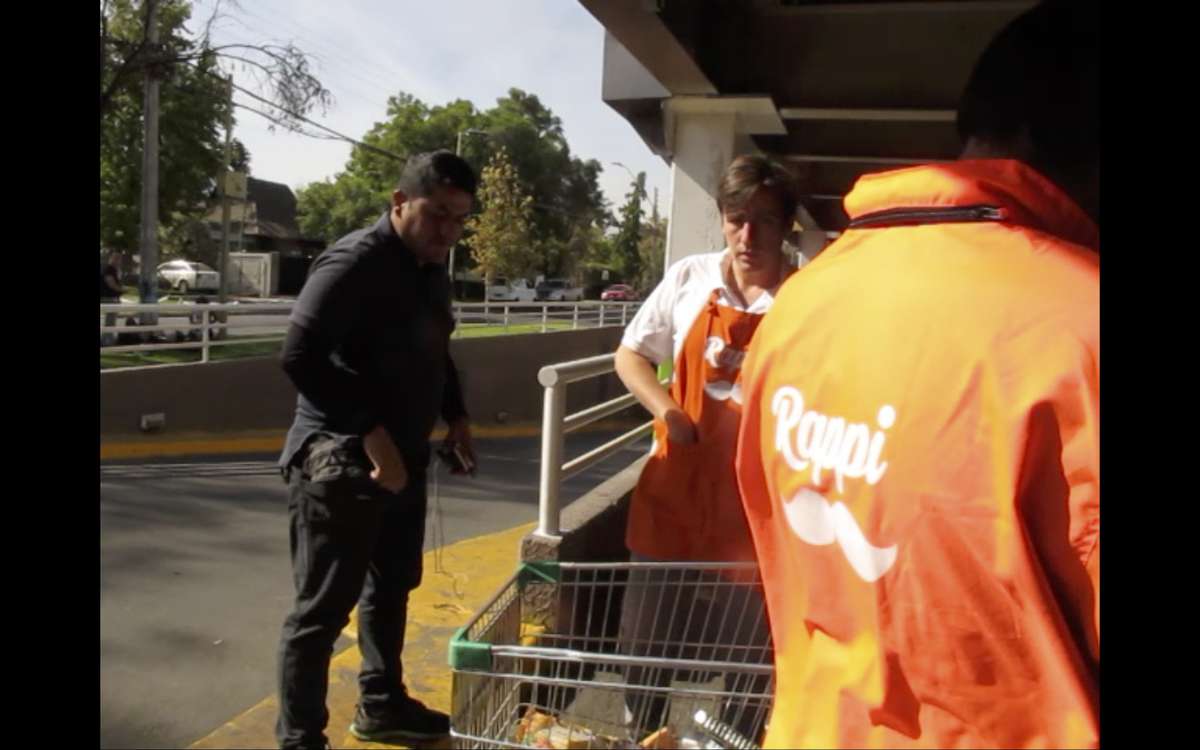
On site interviews. Hired models shop so the Venezuelan workers don’t enter the commerces. Santiago, Chile. 2020
AppSCAPES
AppSCAPES

- Systemic changes
For delivery-app users, public space is no longer the place of commerce nether of consumption. Its use is a waste of time (which the platform sells). Curiously, the same activities that originally united people in cities, today allow isolation. What once was the best part of life, today is illusory upgraded and rationalized. On one hand delivery backpack volume is growing on the streets, on the other departments are getting smaller. Home service is obsolete, one worker is just in the place where you need it. The currency is not only money, but data. This way propaganda can easily find the precise consumer. Immigrant workers use the streets that the citizens pay for. Restaurants convert to black-kitchens. Architecture doesn’t need to gather nor attract the public for consumption.
Considering this, future is now! To emphasize these changes, I propose 3 rather catastrophic projects which respond to 3 different scenarios that could affect the app: economic, material and social growth.
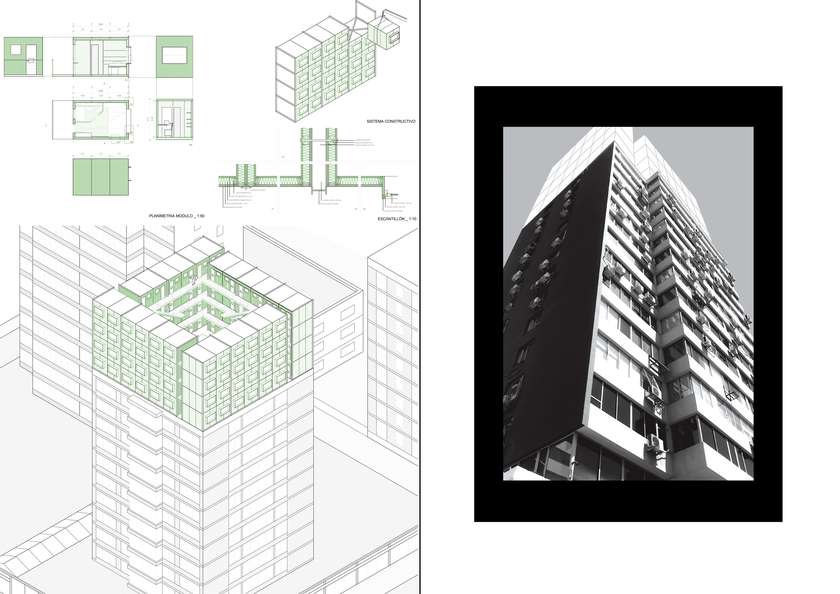
When optimizing man productivity (economic growth) architecture converts to a machine-cell tool
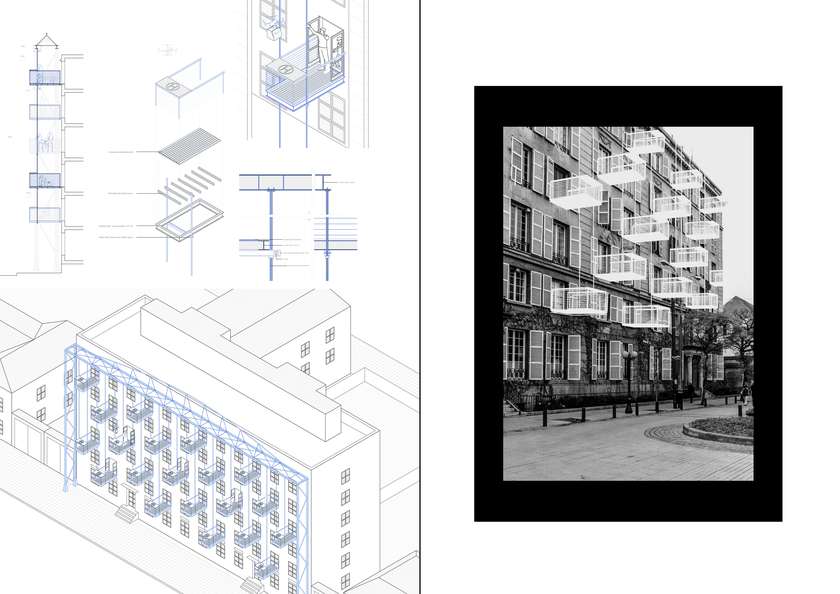
Materializing the app robotizes delivery, to which architecture has to adapt.
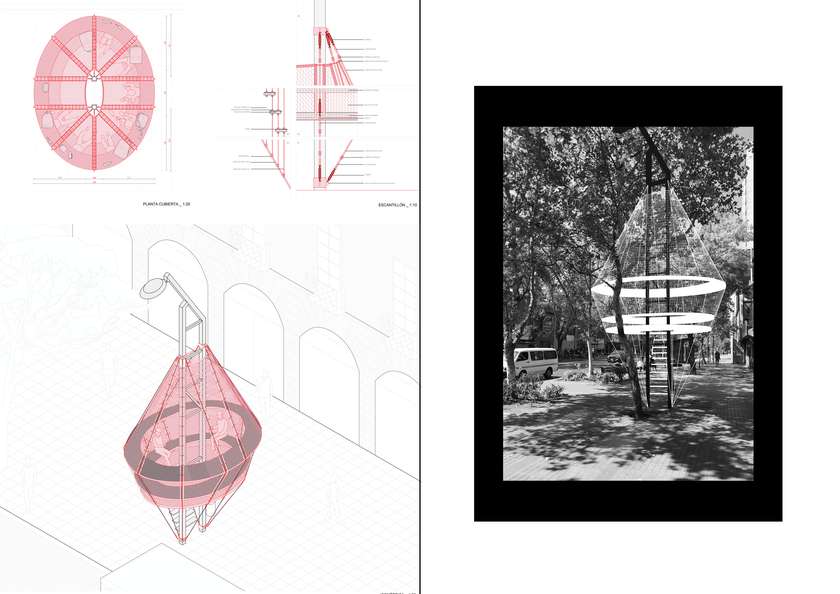
For better socializing of both the consumer (local chilean citizen) and the delivery immigrant worker (educated Venezuelan professional) they are distanced.
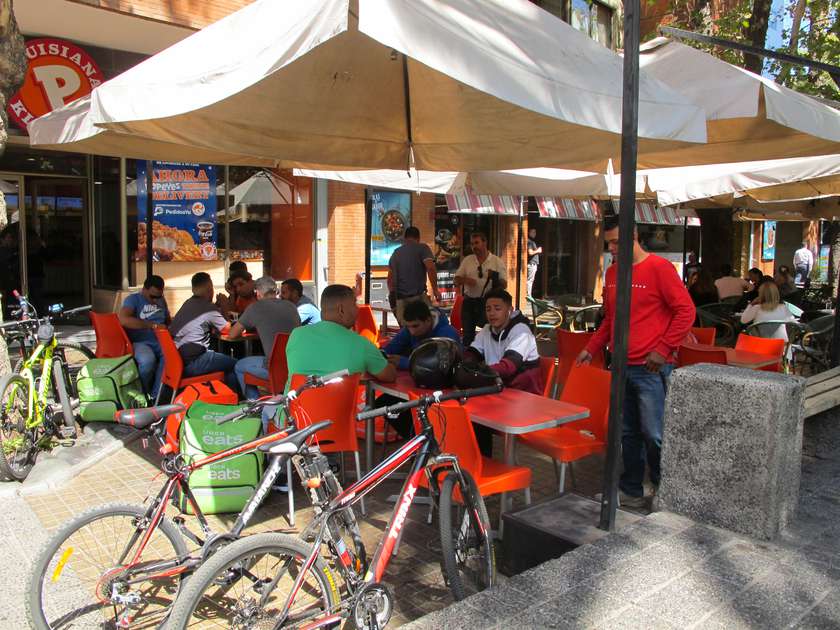
On site interviews. Workers use the public spaces and restaurants instead of the consumers. Santiago, Chile. 2020.
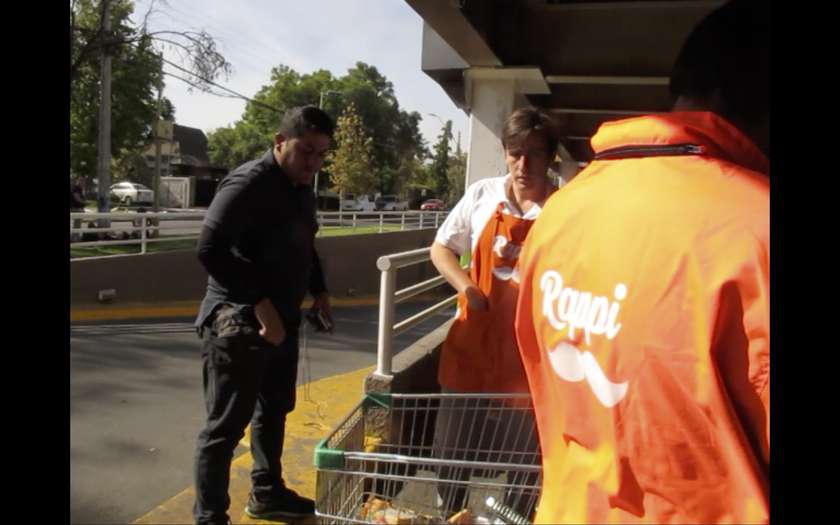
On site interviews. Hired models shop so the Venezuelan workers don’t enter the commerces. Santiago, Chile. 2020